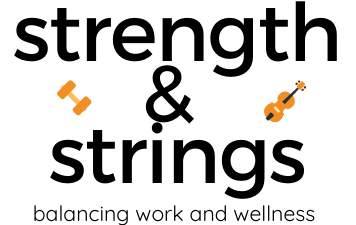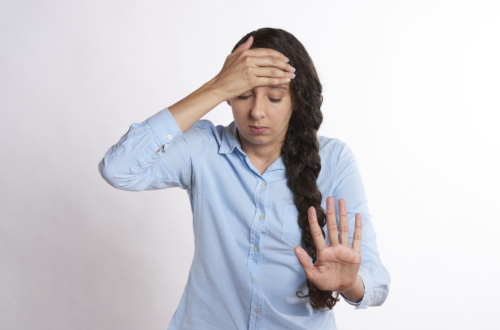
The ultimate guide to stress
Welcome to the third and final post of my "Back to School" series. Click here for the previous post. Although most of us are not going to school, many of our routines are changing due to the end of summer, our children going back to school or job schedule changes. This is a great time to reevaluate your goals and revamp your routines.
We have all experienced stress in some form in our lives and developed an expectation to its appearance. Honestly, I did not know how stressed out I was until the pandemic forced our society to shut down.
Even though we cannot avoid stress, we can minimize the effects on stress in our lives. In this post, I will define stress, discuss how the body experiences stress and provide strategies to reduce and manage it effectively.
Table of Contents
What is stress?
There are two types of stress. One type is clawed eustress, or positive stress. Eustress occurs when a situation is within a person’s coping ability. Individuals normally experience feelings of excitement and fulfillment.
The other type is distress, or negative stress. This type usually happens when a situation or event is seen as being outside one’s coping ability. Distress is often accompanied by frustration, demotivation and the feeling of being overwhelmed.
Both types of stress are caused be stressors, or “a stimulus that challenges the body’s homeostasis and triggers arousal.”

Types of Stressors
| Types of Stressors | Description | Example |
| Acute time-limited | sudden anxiety-inducing situation that tends to be short in duration | Being asked to speak in a meeting |
| Brief naturalistic | real-life challenges that are over relatively quickly | Job interview |
| Stressful event sequences | focal event that produces series of long-term consequences that will subside in the future | death of a loved one |
| Chronic | situations caused by life-changing circumstance without a clear end point | suffering a permanent physical disability from a car accident |
| Distant | traumatic experiences that occurred in the past but continue to have psychological and emotional impacts | serving in the military during a time of war |
How does the body experience stress?
Hans Selye, a stress researcher, published research about the General Adaptation Syndrome (GAS), the sequence of events that the body experiences in order to efficiently respond to stress in the 1950’s. GAS has three phases: alarm, resistance, and exhaustion.
- Alarm phase- This is when the initial response happens. Similar to “fight or flight,” the pituitary glands signal the production of hormones such epinephrine and norepinephrine in order to prepare the body for a response.
- Resistance phase– This is when the body begins to cope and adapt to the stressor. The body returns to its normal state. However, cortisol, a stress hormone is produced in the body for energy. When cortisol levels remain high in the body for an extended period of time, stomach ulcers can develop due to an increase production of stomach acid and the immune system is diminished. Cortisol production will continue until the stressor is managed or resolved.
- Exhaustion phase– This is when the body stops coping and adapting to the stressor. At this point, the effects of cortisol are experienced.

Symptoms of stress
When an individual is exposed to a stressor, the body’s response is dependent on the duration.
Acute, or short-term effects of stress include:
- increase in heart rate, respiration rate and blood pressure
- muscular tension particularly in back, jaw and neck
- digestive issues
- cold and clammy skin and extremities
- dry mouth and throat
- heightened senses
- change in emotional state, particularly feelings of anger, frustration and irritability
These symptoms normally subside after the stressor ends. If the body is exposed to stress for a long period of time, the body can experience changes to the brain, organs and systems.
Long-term effects of stress include:
- altered emotions due to reduced serotonin levels
- reproductive problems
- increased risk of osteoporosis and insulin resistance
- chronic inflammation
- gastrointestinal issues
- weight gain
- memory impairment
- cardiovascular dysfunction
- chronic pain
- headaches
In addition to the effects above, stress can also interfere with the creation and maintenance of healthy habits such as sleep, exercise and diet.
Techniques to reduce stress
Keep in mind that the outcome of a stressful situation depends on your perception and reaction to the stressor. Essentially, your stress levels are largely dependent on how you deal with stress.
Since the physical effects of stress can be taxing on the body, reducing the amount of stress you experience is a key factor in shortening the duration of its effects.
Mental techniques
- Meditation
- Visual imagery (focusing on a imaginary situation such as a beach vacation)
- Reframing and Relabeling (changing your outlook about a situation)
- Developing awareness of emotional triggers (acknowledging emotions and moving past them)
Physical techniques
- Eating a proper diet (focus on nutrient-dense foods and avoiding sugary and fatty foods)
- Exercise (can counteract the hormones produced in the adapt and resistance phases)
- Progressive muscle relaxation (contracting then relaxing individual muscle groups to retrain the body’s stress response)
- Breathing techniques (deep, diaphragmatic breathing to promote relaxation)
Need more suggestions? Check out this post! 4 new ways to improve your mental health

Stress management techniques
Despite every attempt to reduce stress, sometimes it is unavoidable. It is important to have some strategies to help redirect your feelings before it takes over your daily life.
- Effective time management (this includes saying no).
- Assertive communication (communicate your needs without disrespecting yourself or other people)
- Examine and work on coping skills (how you respond to situations)
- Set attainable and measurable goals.
- Schedule downtime.
- Accept the situation for what it is when it is out of your control.
- Anticipate stressful situations (holidays, family vacations).
- Organize your space.
- Get enough sleep.
- Have a support system (share your experiences, ask for help)
Final thoughts
To summarize, stress has a strong effect on the body and can become detrimental to your health if you do not take control. A combination of the stress reduction and management tips is best. If your stress is preventing you from living a normal life, please seek professional help.
Do you get stressed out often? How do you manage stress?







10 Comments
Fawn
Stress is unavoidable but you laid out some great stress management techniques for those of us who want to get it under control! Thanks for sharing. Pinning to Pinterest too! 😊
Sapphire
Thank you!
Sabrina
These are very stressful times. Most of the tips are awesome. I practice some already but there are a few here that will help me as well. Thanks for sharing.
Sapphire
Indeed. Which tips do you practice already?
Michelle
Thanks for sharing these helpful stress management tips and techniques.
Sapphire
You’re welcome!
Ann Marie
Such a great post. So perfectly laid out and easy to follow. This pandemic has caused stress for us all! Will practice the 4 way to manage stress 🙂
Sapphire
It definitely has been stressful. Thanks for stopping by!
Kathleen Wonders
Stress can definitely build up and overwhelm you if you let it! Totally agree that scheduling self-care/downtime daily is important to get those levels down. I find a cup of tea before the 2nd half of the day and some relaxing music really helps me calm down. 🙂 Saying no to things I don’t really like doing is something that I am trying to get better at too!
Sapphire
I like the idea of afternoon tea and relaxing music and will definitely try that soon.